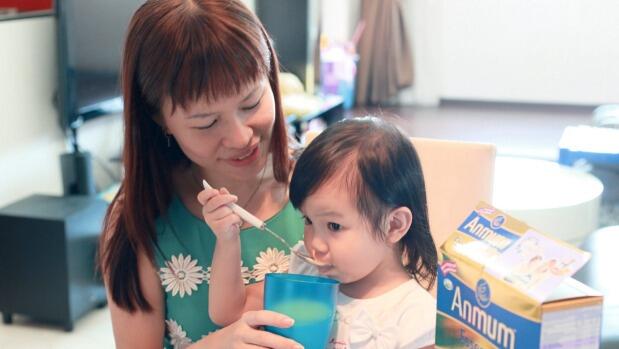Fonterra is using traceability technology so shoppers can instantly check the authenticity of infant formula products while they are still on store shelfs.
Quick Read (QR) codes are initially on the cans of the dairy co-operative’s infant formula brand Anmum at New Zealand stores and will eventually help prevent fraud and counterfeiting overseas.
Each can carries a unique QR code that when scanned using a mobile device, connects infant formula buyers to a webpage with information and a batch number verifying that it is authentic.
Chinese shoppers trust and are prepared to pay more for New Zealand infant formula after contamination scares and scandals, but fake infant formula cans were found last year with ties to counterfeit rings.
Consumers can also scan cans at any stage after they have bought it to get up to date status information about the product.
The technology showed consumers where and when the product was manufactured, its expiry date was and whether it was authentic, Fonterra trust in source general manager Tim Kirk said.
“You know it’s a genuine article and it’s safe to consume.”
Kirk said the technology was no gimmick and connected consumers to their food, provided transparency through the supply chain and allowed them to see the origin of their food.
“That’s becoming more important to food on a global level. It also delivers a level of provenance. It is about Fonterra, it is about New Zealand and the care that is taken around how we deliver the food.”
The technology would also be a tool in Fonterra’s food defence programme, used to stop fraud and counterfeiting overseas where people tried to pass off locally made products as New Zealand-made, he said.
“It’s a tool in the tool chest to ensures consumers are getting an authentic product, they understand the genealogy of that product.”
Fonterra is also able to do live updates so if the product was affected by a recall, the scan would inform the buyer of that.
“We can actually update individual cans or batches of cans with new messaging so if the consumer scans the product after purchasing and the status of that product has changed, they will get that new message.”
Anmum was chosen as the first product to launch the codes because Fonterra wanted to protect their most susceptible consumers first, he said.
“We had to give those consumers plus their mothers and fathers the assurance that the product they were consuming met their expectations.”
Initially only available in New Zealand, it will be rolled out globally in the next few months through to the end of the year.
The long term plan was to have the technology on all of Fonterra’s products, from high end infant formula to its Anchor milk in New Zealand and its overseas markets.
Once that was done, New Zealand consumers could scan the code of Anchor milk in their local supermarket to also learn about where it had come from, said Kirk.
“At it’s core it’s about traceability and product authentication but it’s also about connecting consumers with their food as well.”
By the end of this year, Fonterra plans to have 90 per cent of its plants globally with traceability data electronically connected, with the remaining 10 per cent to be completed in 2018-2019.
“Ultimately we will have full electronic traceability for every drop of milk starting with where it came from. This includes every stage of processing, every ingredient, every product and our direct sales to customers in more than 100 countries.”
The ultimate vision would be for consumers to be able to trace product back to the farm, but the realities of tankers collecting milk daily from multiple farms meant it was extremely difficult to achieve, he said.
“However what we do have that sits in behind the consumer interface is that we portray the region where that milk was secured from and we can communicate the manufacturing facilities where that milk was processed.”
Source: http://bit.ly/2nIESPq











